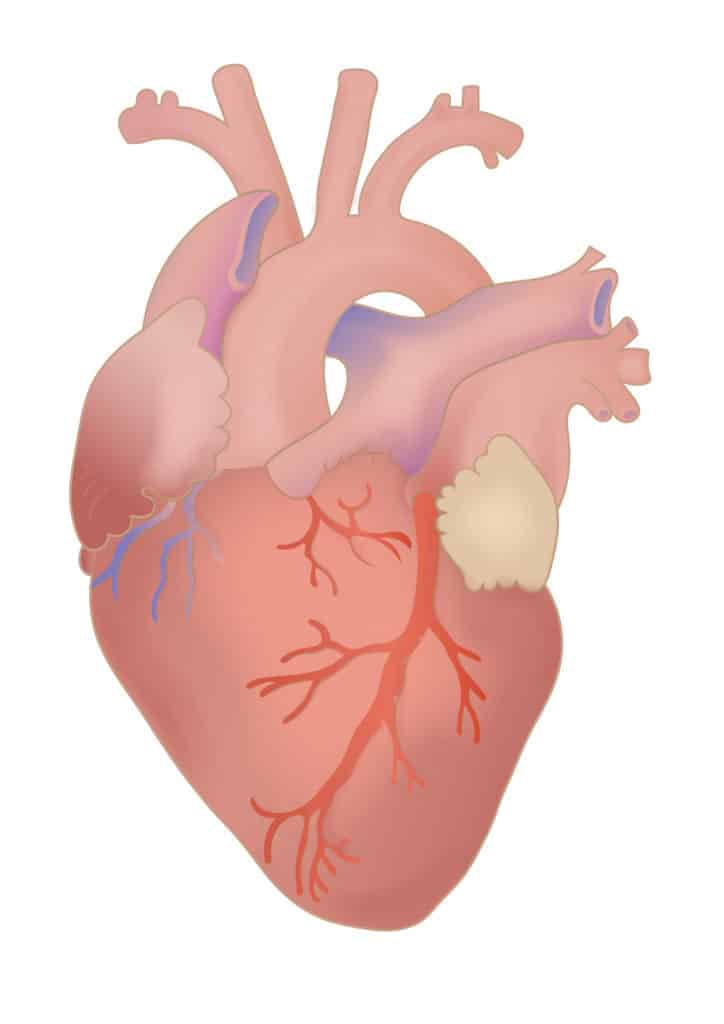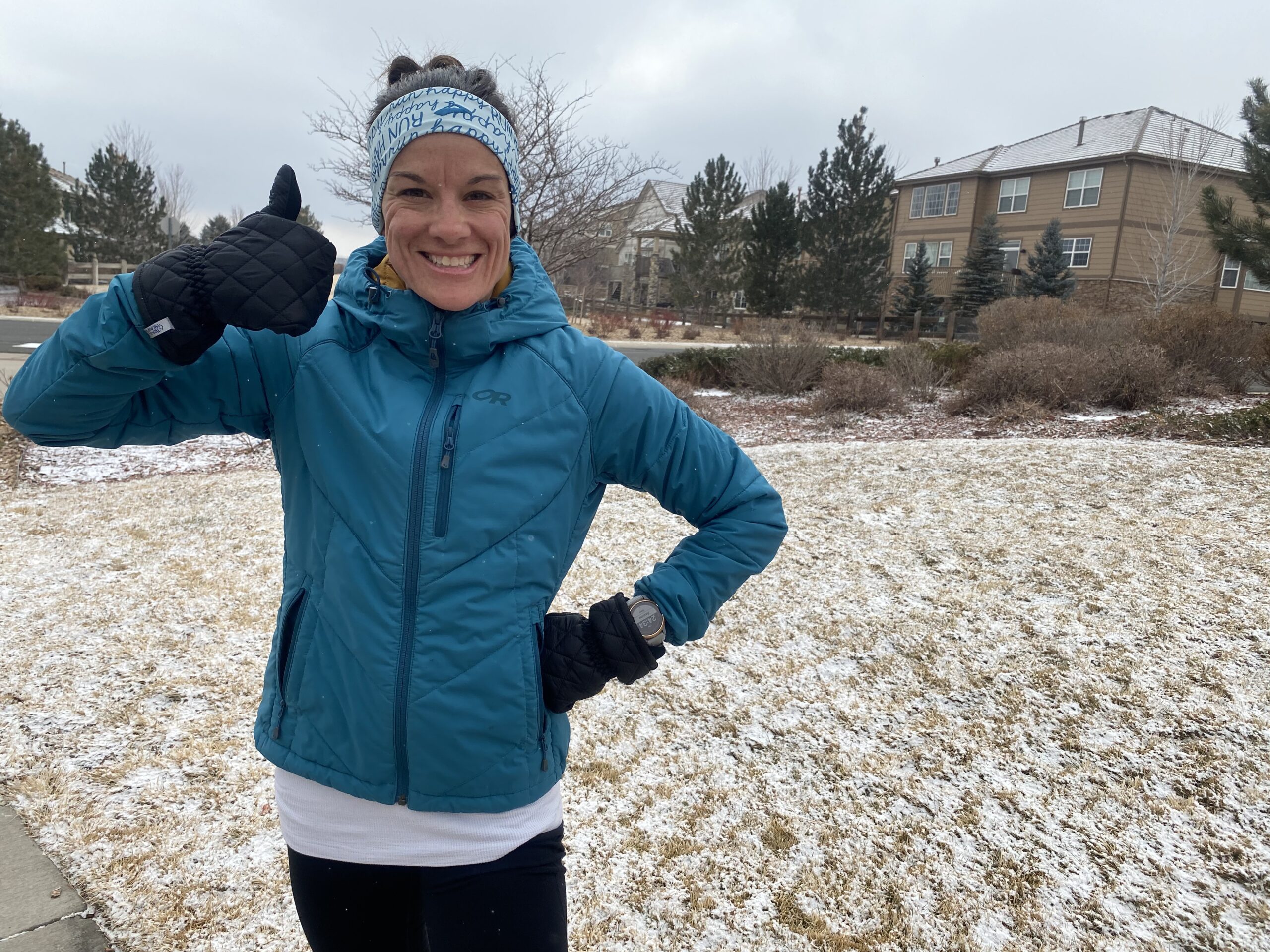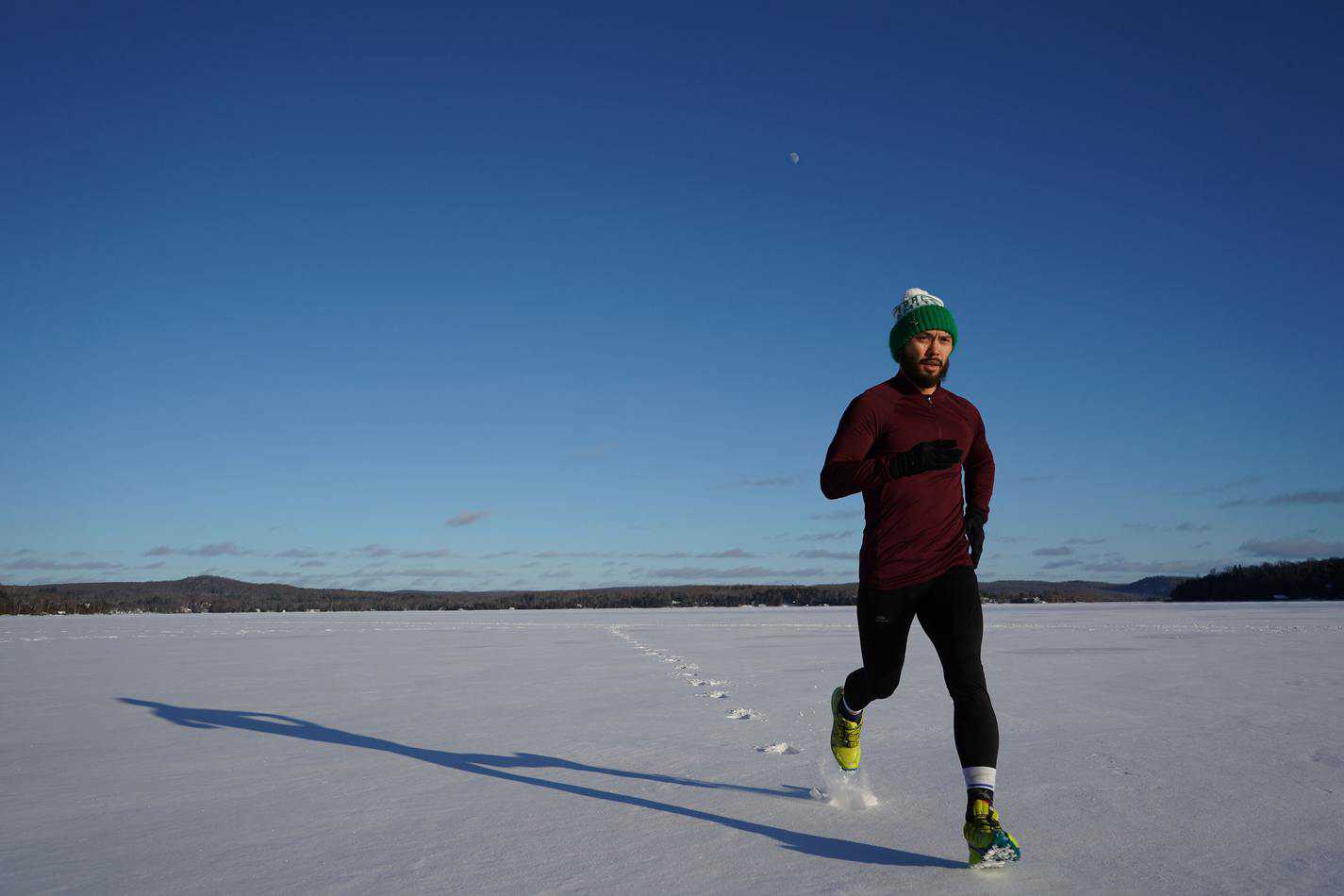One reason that many people get into the sport of running in the first place is that it’s cheap. All you have to do is lace up and head out your door for a healthy endorphin inducing exercise. As your running evolves and you start signing up for races and needing more gear for your long runs in marathon training, the costs begin to rise. In order to not spend your life savings on your hobby, you need to determine which gear is actually necessary. Compression socks are one of those gear items marathon runners find themselves asking, “Do I really need them?”
Compression socks can offer benefits to marathon runners such as improved blood circulation, decreased inflammation, and reduced muscle fatigue. Many runners also report increased performance and quicker recovery.
It’s important to know how compression socks work and the benefits they can offer you in your quest for a marathon finish or personal record. Heck, if they can keep you healthy enough to continue through your training cycle to make it to the marathon starting line, they’re probably a piece of gear that’s worth the price tag.
What are Compression Socks?
To non-runners, people may think runners are just wearing these long socks for fun, or to add a little style to their outfit. In actuality, they do serve a purpose. They are also different in how they fit and feel as well as what they do. Understanding how they work can help you have a better understanding of why people started wearing them for running in the first place.
Though these socks are quite noticeable and often bright in color, they aren’t typically worn just for fashion purposes. They will feel quite different when you put them on and take some getting used to. They usually go all the way up to the knee and are very tight. The sock feels stronger than a typical knee-sock you might wear. They offer a gentle squeezing feeling, but should not be uncomfortable. In the more often used “graduated” compression socks, the level of compression decreases as it goes up the leg – so the tightness will be more obvious near the foot and ankle. Later we’ll guide you on how to ensure a proper fitting compression sock for marathon running.
Though popular in marathon running especially, compression socks aren’t only used by runners. Experts argue over the amount of benefit they actual offer, but it also depends on the person.
While wearing them, compression socks can:
- promote blood flow
- increase circulation
- reduce swelling

- reduce muscle fatigue
- provide faster recovery of sore legs
The ultimate goal behind the use of compression socks for anyone is that the heart is able to work more efficiently by delivering oxygen and nutrients throughout the body more easily.
Compression socks can even lessen the risk of blood clots or other circulation problems in those who are more susceptible. Pregnant women, people who’ve just gotten surgery or those with circulation issues are people who may have a medically necessary reason to wear compression socks, as described here. The circulation benefits noted in these circumstances have since been carried over to the athletic world. Marathon runners are a group of people who have capitalized on the benefits of these pressure-inducing socks.
Should Marathon Runners Wear Compression Socks – the YES
Now that you understand what compression socks feel like and do in general, it’s time to look into how they can help you in your marathon running. Whether you’re new to distance running and are trying to decide what gear you need or you’ve run marathons before and you’re looking to improve your performance, you might be trying to decide if you’d like to try compression socks. Unlike people who are wearing them with for a medical condition, most marathon runners aren’t going to find that compression socks fall into the “need” category.
But as you probably know, once you find what works well – you stick with it. This is the way many marathon runners feel about their compression socks. 18-time marathoner and 2-time Ironman Heather Jenson (Instagram @triandrungirl) for example, appears to wear them in all of her races (as of the time this article was written).
Buying compression socks is a small investment. So, you’ll want to know what you can expect for your running when you wear them. At worst, you may not feel a noticeable difference in wearing them, but they definitely fall in the “can’t hurt category.” On the other hand, if your training runs feel easier, you’re recovering faster and you start to set some race personal records, you’ll probably never want to take them off.
Benefits of Wearing Compression Socks While Running
As an endurance runner, you know that your feet, ankles, and legs are put under an incredible amount of stress. It is not uncommon to feel aches and pains throughout your training cycle. Most marathon runners are running 5 or 6 days a week, especially when using one of the top training plans I discuss in this article, and often adding cross-training as well. Though there are so many benefits to this kind of daily exercise, it can also cause a lot of fatigue. It is claimed that compression socks are something that can help with this. In order to have a clear understanding of how they can help with your running, let’s revisit the points on what compression socks can do and how that relates to your running.
- They promote blood flow and increase circulation – Everyone knows you need oxygen-rich blood in your muscles to keep moving properly. With compression, the oxygen is moved more readily through the body creating a more consistent athletic performance.
- They reduce swelling – When running, the strain put on the ankles, and feet can cause a buildup of fluid around these areas.
- Since compression socks are tightest in these areas, this pooling can be prevented.
- They reduce muscle fatigue – When exercising, the body produces a waste product called lactic acid. Since compression socks increase circulation, the lactic acid is removed from the muscles more quickly. In turn, there is a decrease in sore muscles. Additionally, with the impact force running puts on our legs, the muscles experience vibrations. It is thought that muscles soreness is caused by these muscle vibrations. It makes sense that a compression sock could lessen these vibrations, reducing post-run soreness.
- They provide faster recovery of sore legs – Marathon runners who wear compression socks often wear them post running as well. Although they are said to help in recovery mode when wearing them during your runs, many runners swear by their extended benefits through everyday use. Soreness that results from overuse of the muscles while marathon training can be lessened with compression sock wear. They work by maintaining proper blood flow after your run is over and alleviating any pain you might be feeling.
But are compression socks worth it?
The truth is that the research on whether compression socks can help a runner maintain their speed with a positive effect on performance during a run is not definitive. There is much more evidence pointing to their helpfulness in recovery, however. But again, you will find studies both sides, just as you will find many users who praise their benefits while others don’t feel a difference.
There is some conclusive evidence, however. B. Byrne is a researcher who has studied the effect of compression on varying individuals and it is not reputed that the graduated-type compression socks do, in fact, aid in circulation.
At this point, it’s up to you to decide if the benefits sound enticing enough to give compression socks a try. With the number of studies pointing to the positive effects they can have specifically during recovery, it certainly wouldn’t hurt. With the suffering I’ve had in the past with tight calves and Achilles Tendonitis (as I wrote about in this article), I’m intrigued. Anything that can work against those running injuries is something worth investing in. Like many things, consistency is key. Once you choose to wear them, be consistent in their use in order to see positive results.
If at this point you’re thinking that all of the info in favor of compression socks sounds pretty good, you’re probably wondering which ones to buy. Trying to navigate the differences among the types of compression socks can be a little overwhelming, so we have the following guide here to help you.
Best Marathon Running Compression Socks
You would think buying compressions socks would be as simple as going to your local running store and picking out the ones you like best. But, it isn’t. There are actually 2 categories of compression socks, but the graduated style is normally directed toward runners. There are also varying degrees of pressure ranging from mild to extra firm. Sizing and material are another consideration.
Amount of Pressure – Most compression socks will have the measurement of pressure stated on them which is measured with the abbreviation of mmHg. The higher the number, the tighter the compression. Runners typically land in the moderate to firm category with a compression of 15 – 30 mmHg. 20 mmHg is an excellent place to start and is said to be a good amount to receive proper compression benefits without being too tight.
Sizing – Most people find the best fit when they get compression socks that are the same size as their running shoes. They often come in a S, M, L range with complementing shoe sizes for each. Expect them to feel very different when you pull them on. Remember, they are supposed to be tight! But, if they are giving you discomfort, you’ll probably need to find a sock that has a lower compression or a larger size.
Materials – Most good compression socks are generally made from a blend of nylon, spandex, and Lycra. These synthetic materials are stretchy and also wick away sweat. Don’t try to get away with anything else!
Below we’ve outlined a few top choices in both the moderate and firm categories.
I certainly feel ready to add compression running socks to my marathon gear. When we train, we put so much stress on our legs through all those high mileage weeks. I think we owe it to our sore muscles and joints to give them a try.
Frequently Asked Questions
What do compression arm sleeves do? Though not as common, some marathon runners also wear compression arm sleeves. They act in the same way as compression socks by increasing blood flow and offering better circulation. Since a much lower amount of strain is put on your arms when you’re running, their benefits aren’t considered to be as strong as compression socks. Some runners simply wear basic arm sleeves for warmth – you can learn more here.
Can you sleep with compression socks on? In general, sleeping in compression socks is not recommended. Their jobs to aid in blood circulation while fighting gravity. Since you’re laying down while you sleep, wearing compression socks is really not necessary. For a healthy person, sleeping in them isn’t probably going to have negative side effects if they aren’t too tight. However, if this is something you want to do on a consistent basis it’s best to ask your doctor’s opinion.
*As an Amazon Associate I earn a commission from qualifying purchases.











